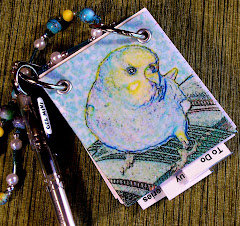The study of happiness is a relatively new discipline in psychology, but it has already yielded some fascinating results. What makes people happy? Is it health or wealth? Does it have anything to do with age, race, or geography?
Turns out that we are all born with a genetic predisposition to be either happy or sad, but that only accounts for about 50% of our state of happiness. So if you had depressed parents, you're more likely to lean toward depression yourself. But that certainly isn't the whole story.
Believe it or not, outward circumstances--where we live, our jobs, our financial status--account for only about ten percent of our happiness. That is because human beings have an incredible ability to adapt. If our outer circumtances change--losing a job or winning a lottery prize, for example--we feel a temporary change in mood. But soon we adapt to the new circumtances and we return to our normal state. That's why lottery winners are statistically no happier than anybody else. Yes, people with health and wealth who live in, say, a beach house in southern California are statistically more likely to be happy than someone chronically ill, struggling to make ends meet, and living in a slum. But only somewhat.
So what makes up the other 40% of our happiness quotient? It's what we do. How we choose to act. Activities that tend to make people happier include exercise, sex (with someone you love), socializing, maintaining relationships with family and friends, trying to see the best in people and circumstances, helping others, devoting effort to meaningful causes, and striving toward personal goals.
In short, people are just about as happy as they decide to be. So today, no matter what your circumstances, take control of your mood. Decide to be happy.
Monday, July 16, 2007
Subscribe to:
Post Comments (Atom)



No comments:
Post a Comment